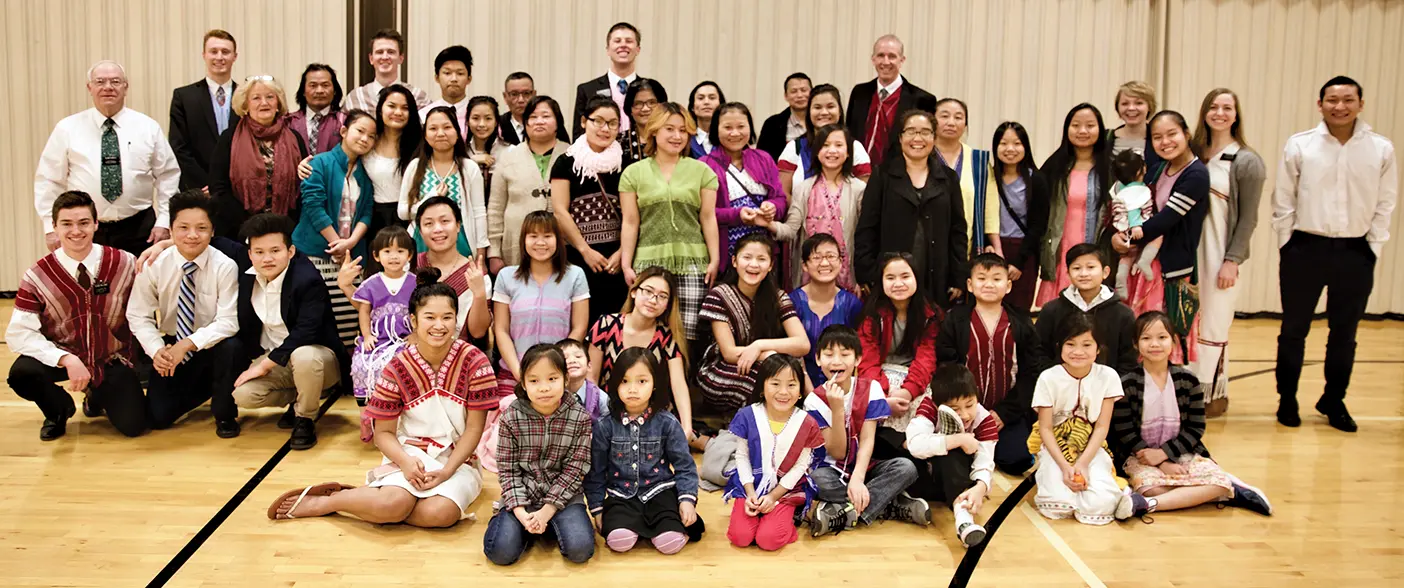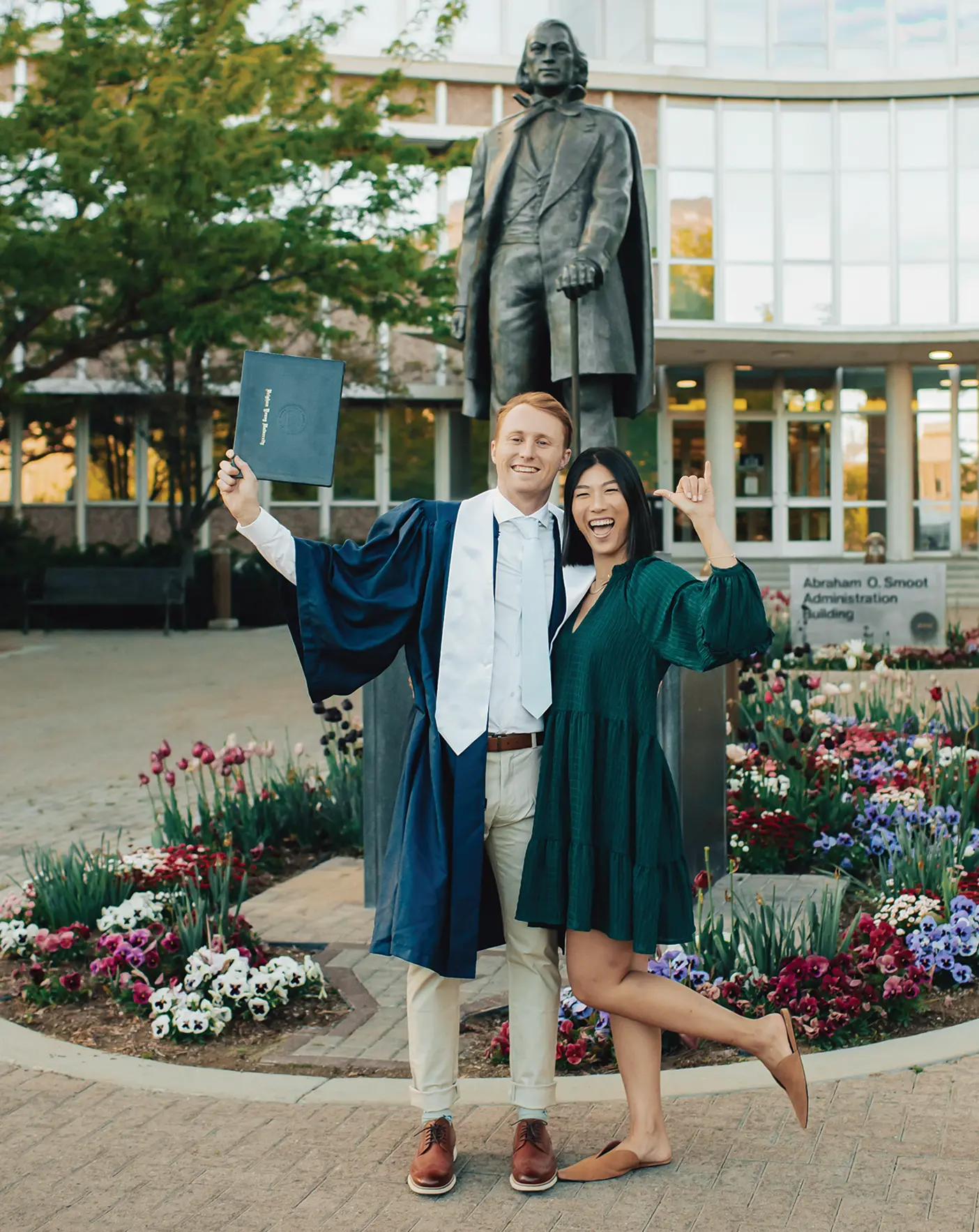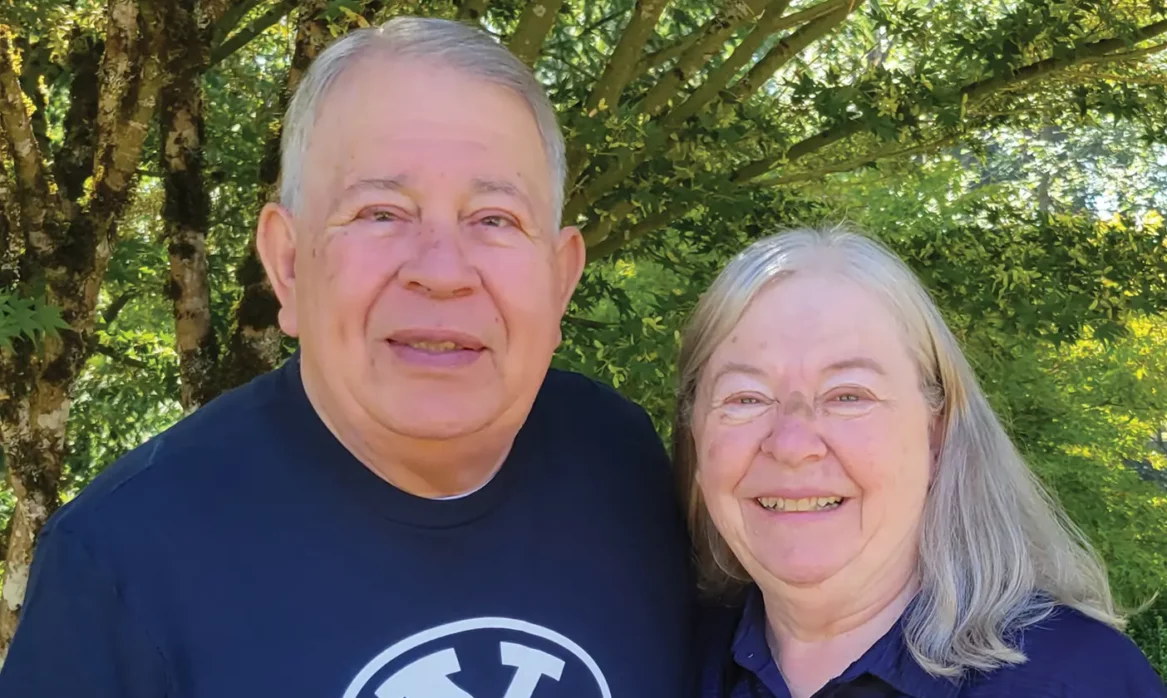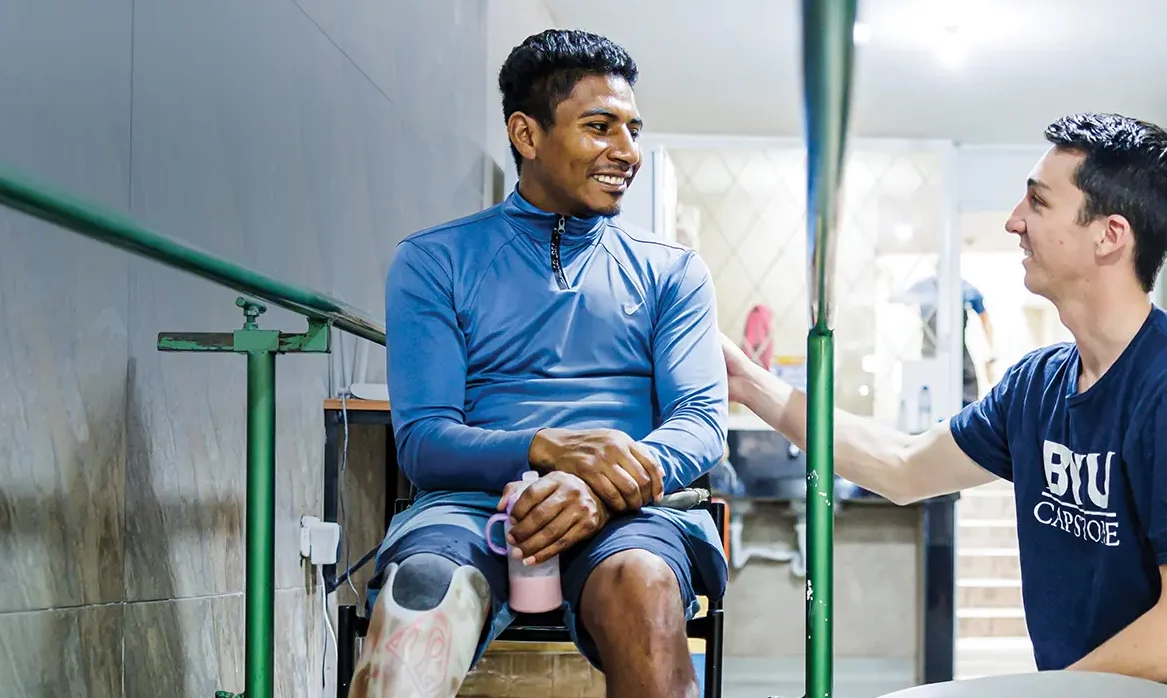A young couple finds joy in friendships fostered on their missions.
As he accepted a mission call to chilly Minnesota, Las Vegas native Samuel F. Blackburn (BS ’21) guessed his life would change by serving a mission, but he never anticipated how. He got his first inkling nine months into his mission when he was asked to serve the Karen (kah-Ren) population. However, that was just the firstfruits of his service.

Blackburn was excited about the opportunity to serve the Karen people, but he knew it would not be easy. Most of Minnesota’s Karen people fled upheaval and civil war in Myanmar, many spending years in refugee camps in Thailand before emigrating to the United States. “They come to America, which is a wonderful country filled with wonderful opportunities, but it is also . . . very difficult to learn English,” Blackburn says. The cultural adjustment is even more difficult. “To go from living in a refugee camp to surviving in the United States,” he says, “that’s a big step to take.”
“There are no church materials in Karen,” Blackburn says. Nor did he receive any language training. He had a few outdated dictionaries from the 1800s but says he mostly “just had to learn the language on
my own.”

Blackburn grew to love the Karen people and admire their positivity, despite their challenges. “They are probably some of the happiest people that I’ve ever met,” Blackburn says.
Blackburn returned home and began studying at BYU. There he reconnected with some Karen friends and met his wife, Valerie Ching Blackburn (BS ’20)—who also served in the Minnesota Minneapolis Mission. He kept up his language skills by attending a Karen branch in Salt Lake City.
After graduating in statistics, Samuel landed a job in management consulting, and the Blackburns found themselves moving back to Minnesota, something they hadn’t anticipated. Attending the Karen branch in St. Paul—formed after their missions—the Blackburns again found opportunities to serve their friends: everything from helping people file their taxes to controlling pests to interpreting at parent-teacher conferences.
Blackburn says his interactions with the Karen people teach him how to keep a positive perspective. And they underscore the importance of fostering relationships. “The thing that has helped them the most has been friendship,” he says. “It’s almost made a night-and-day difference in some of their lives.”












